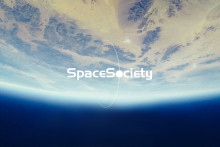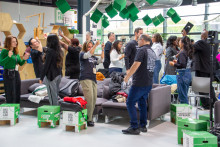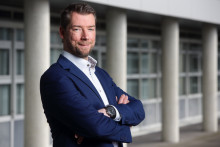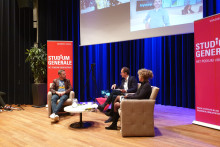According to Anton Atanasov and Jeroen Ritmeester from SpaceSociety, hosting this event will make the UT the second location in the Netherlands for the so-called NASA Space Apps Challenge. ‘In the last couple of years, it was only hosted in the city of Noordwijk,’ says Atanasov. ‘At a certain point, they had to reject possible participants, because it became too crowded. We want to offer an alternative location.’
'Data is one thing, but it comes down to interpretation and application.'
‘Not only engineering’
During the challenge, participants can join up in teams of five or six people, to work on a project within a broader theme. The theme isn’t clear yet, but for the last couple of years, the NASA Space Apps Challenge had themes like earth observation, Mars colonization and asteroid mining.
Teams get the task to use massive datasets and build an app that makes use of the data. ‘So it’s not only just about engineering,’ says Ritmeester. ‘Great physicists are already out there. This hackathon is about creativity. Data is one thing, but it comes down to interpretation and application. The way you combine all the elements you have, defines if you’re successful or not.’
'We want to make space exciting for everyone.'
Exciting for everyone
Later today, SpaceSociety has its own kick-off event at DesignLab. ‘This is an opportunity to introduce ourselves to the UT community,’ says Atanasov. ‘Of course our main project is launching a satellite into space. But we are working on more than that, like the hackathon and an ESA student challenge, so we can use all the help we can get.’
The main objective of the team is to get space and space-related projects more recognition in Twente. ‘We want to make space exciting for everyone. People have to know that it’s a lot more than just engineering,’ says Atanasov. Ritmeester adds: ‘One could argue that space is the next step in science and technology. Our efforts can help to make the concept of space more tangible for everyone interested.’







